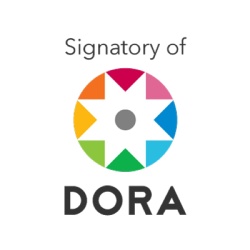The effectiveness of a training program based on emotional intelligence skills to reduce the level of depression in a sample of blood pressure patients - A field study in the state of Laghouat -
فعالية برنامج تدريبي قائم على مهارات الذكاء الوجداني لخفض مستوى الاكتئاب لدى عينة من مرضى الضغط الدموي – دراسة ميدانية بولاية الأغواط -
Abstract
The study aims to measure the effect of a training program based on emotional intelligence skills to reduce the level of depression in a sample of blood pressure patients in the state of Laghouat. The study sample was divided into two groups randomly. An experimental group: It consists of (10) patients to whom a training program prepared by the researchers is applied, and a group Control: It consists of (10) patients for whom the training program was not applied, and the researchers used the emotional intelligence scale, the depression scale, and the training session evaluation form, and the results of the study reached: - There are differences between the mean scores of the experimental and control groups in the post-measurement after applying the program to Emotional intelligence scale for the benefit of the experimental group, - There are differences between the mean scores of the experimental and control groups in the post-measurement after applying the program to the depression scale in favor of the control group, and there are no differences between the mean scores of the experimental group in the follow-up measurement in both the emotional intelligence scale and depression.
Downloads
References
Agarwal, J. Garg, S. (2016, September). RELATIONSHIP OF EMOTIONAL Intelligence with pre hypertznsion and itd impact on ontrast nervous system as assessed by heart rate variability in adult males. Journal of Hypertension. Volume 34. P p 1-13.
American Psychiatric Association DSM-5. (2015). Manuel Diagnostique et statistique des troubles menteaux. Traduction (Marc-Antoin Crocq et Julien Daniel Guelfi). 5em edition. Elsever masson.
Bar-On, R. (2006). The Bar-On model of emotional-social intelligence (ESI). Psicothema, vol. 18, sup l, pp.13-25.
Beck, A, et al. (1980). Cognitive Therapy of Depression. Guilford Clinical Psychology and Psychotherapy Series: New York.
Chrisanthy, V . Katerina, K.(2013, Sep). Coronary Heart Disease and Emotional Intelligence. Glob J Health Sci. 23;5(6).156-65.
Pfeiffer, S. (2001). Emotional intelligence: popular but elusive ontrast. Roeper Review. Vol.23, ISSUE 3, P 138-142.
Goleman, D. (1999). Working with Emotional Intelligence. Great Britain: Bloomsubry publishing Plc.
Mayer, J. D. Salovey, P. (1995). Emotional attention, clarity, and repair: Exploring emotional intelligence using the Trait Meta-Mood Scale. In J. W. Pennebaker (Ed.), Emotion, disclosure, & health American Psychological Association. 125–154.
Vandana, P, Anil, J. (2017, July). ASSESSMENT OF EMOTIONAL INTELLIGENT IN HYPERTENSIVE ADULTS AND NORMAL ADULTS: A COMPARATIVE STUDY. Journal of Advanced Medical and Dental Sciences Research. Vol. 5. Issue 7. p p 9-12.
Randall B. Brown.(2003). Emotions And Behavior: Exercises In Emotional Intelligence. First Published February 1, ther.https ://doi.org/10.1177/1052562902239251
- Arabic references in English :
Baddawi, A. Z. (1980). Glossary of education and teaching terminology. Cairo: Dar Al-Fikr Al-Arabi.
Zidan, E. M., & El-Imam, K. A. (2003, January). Emotional intelligence and its relationship to some learning methods and personality dimensions. Arab Studies in Psychology, 2(1), 11-62. Dar Ghareeb for Printing and Publishing. Cairo.
Faraj, M. A. (2005, January). Emotional intelligence and its relationship to feelings of anger and aggression among university students. Arab Studies in Psychology, 4(1), 93-101. Dar Ghareeb for Printing and Publishing. Cairo.
Al-Mubayyid, M. (2003). Emotional intelligence and emotional health. Belfast: Islamic Office.
Mubarak, S. (2010). The effectiveness of a counseling program for developing emotional intelligence among visually impaired students residing within the school from high school students. (Unpublished doctoral dissertation). Department of Psychological Counseling, Cairo University, Egypt.

This work is licensed under a Creative Commons Attribution-NonCommercial 4.0 International License.









